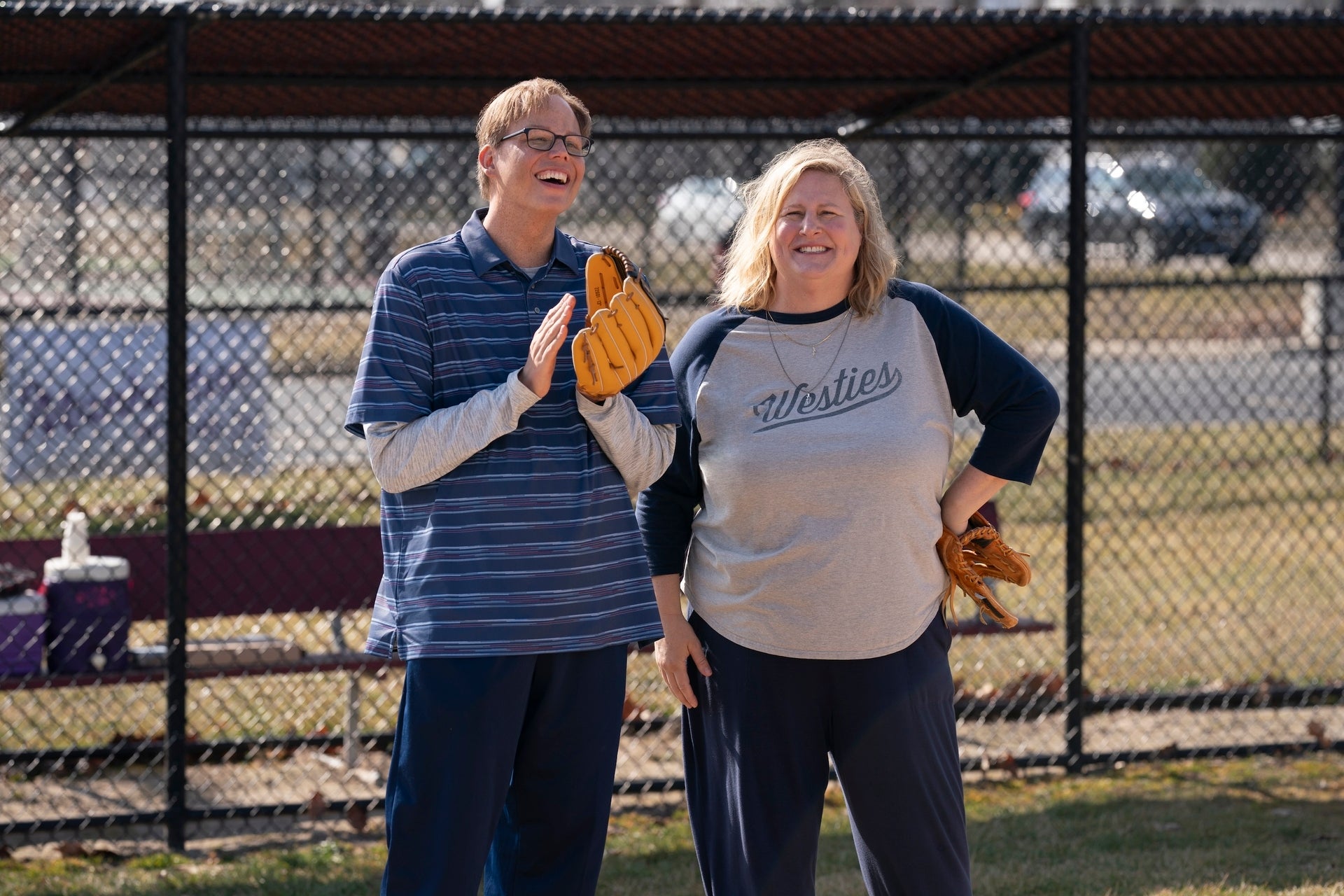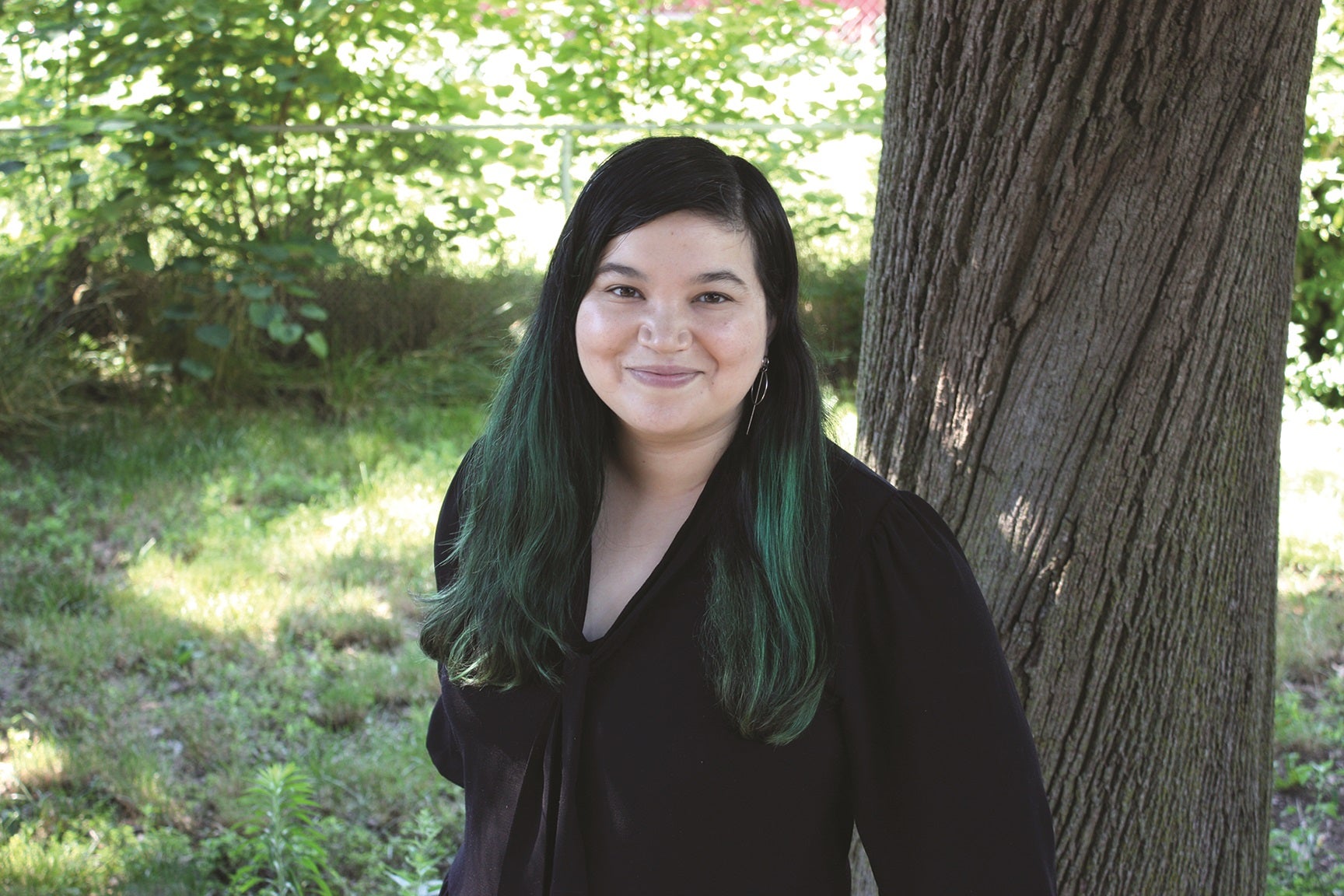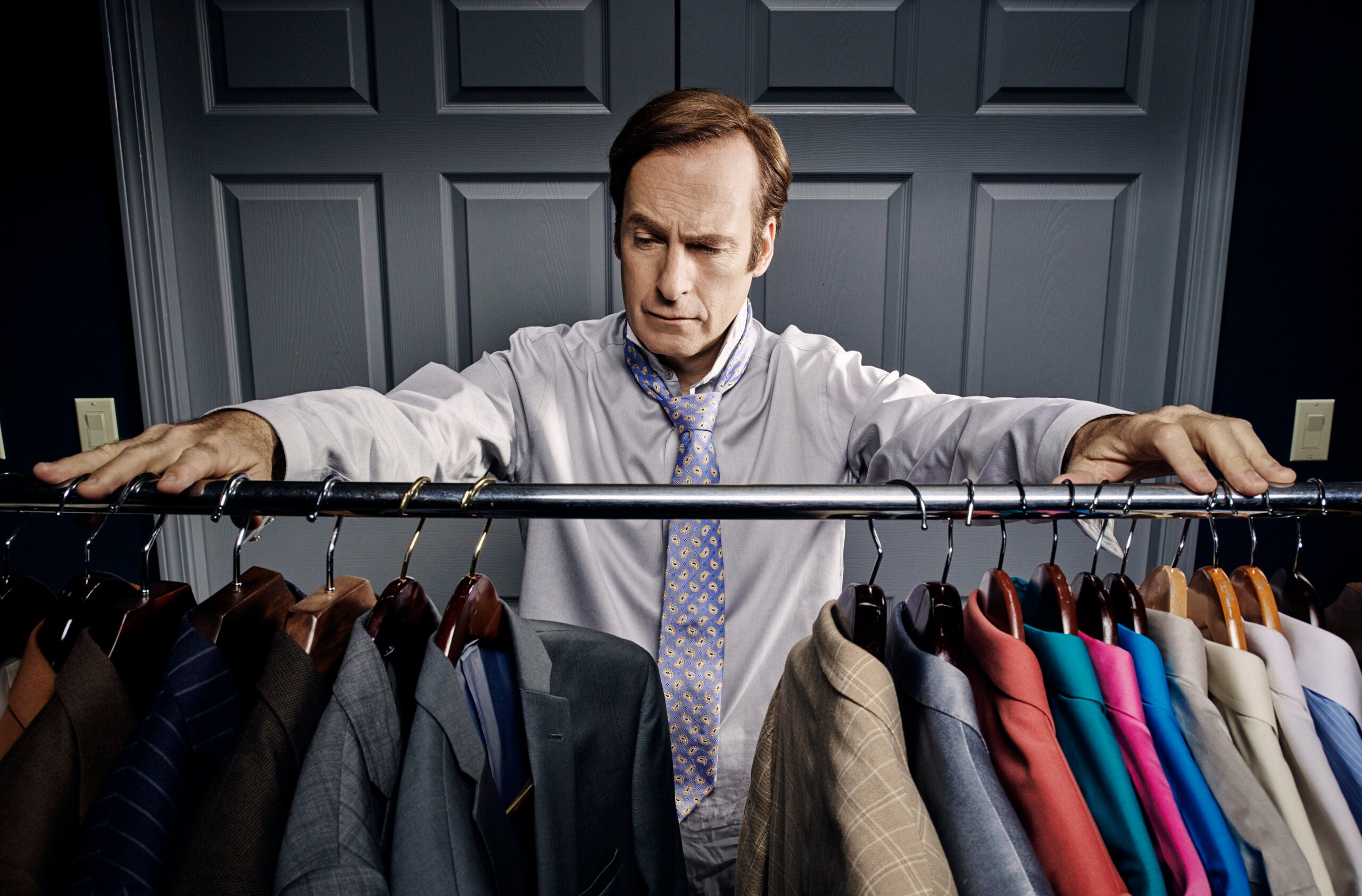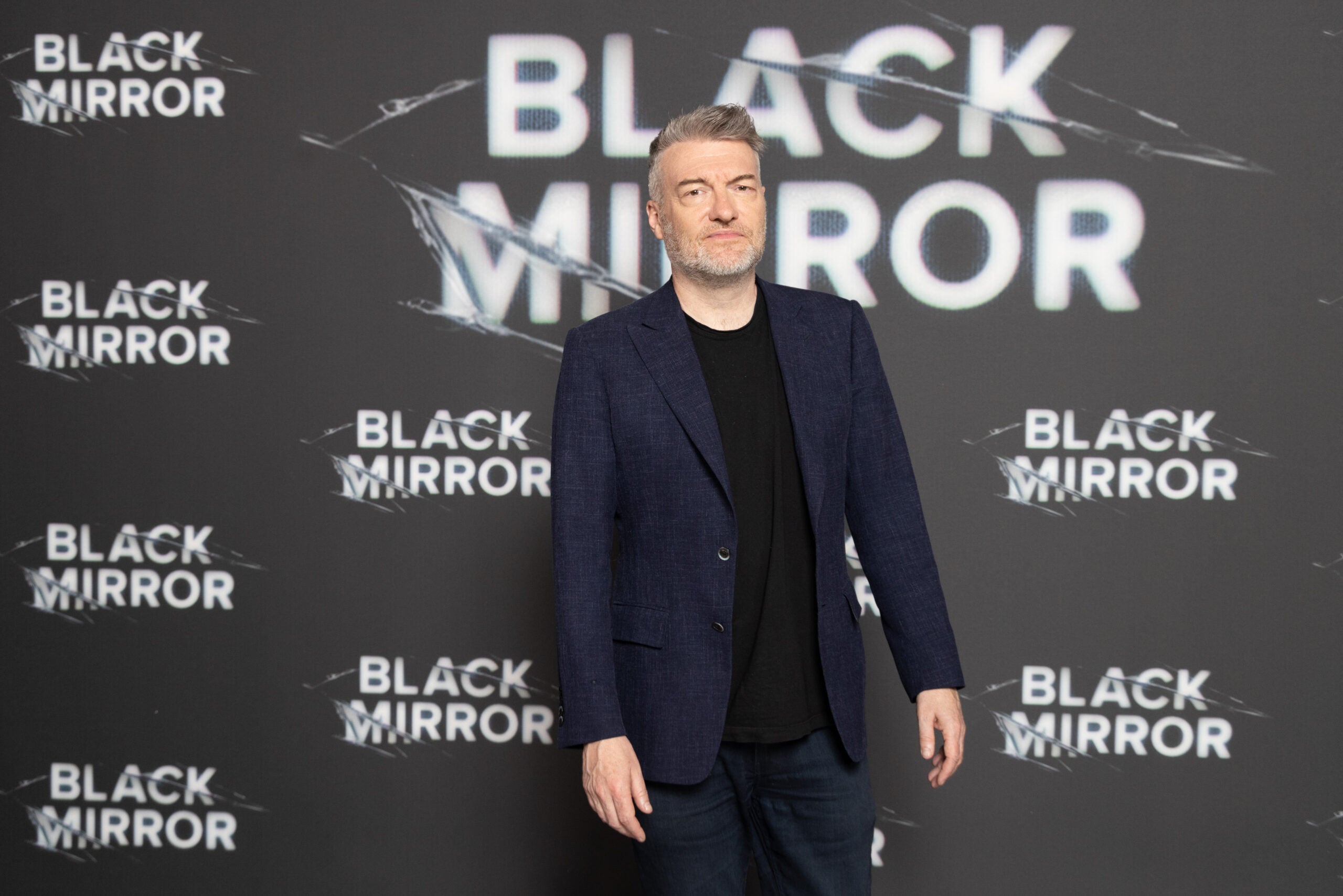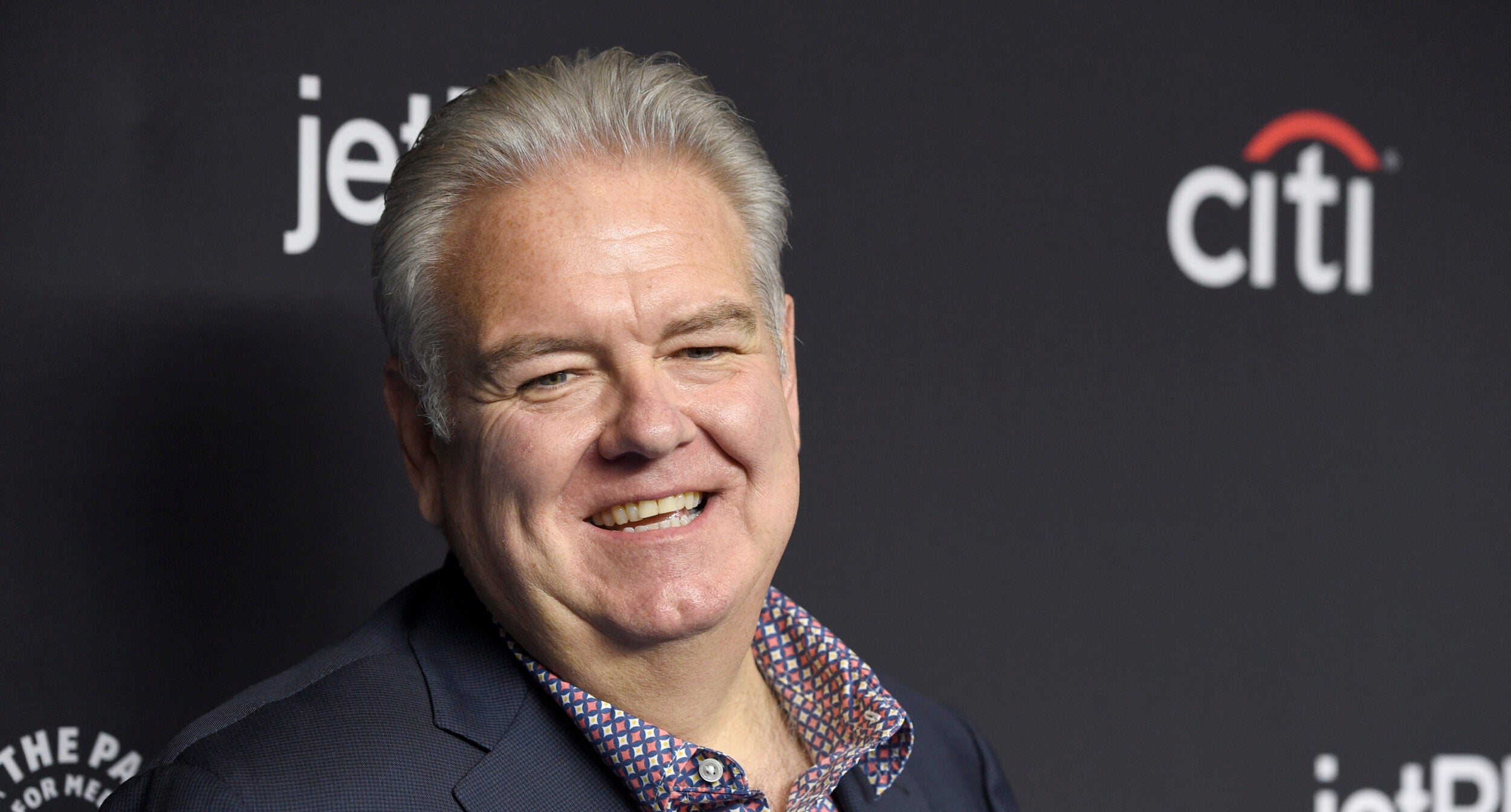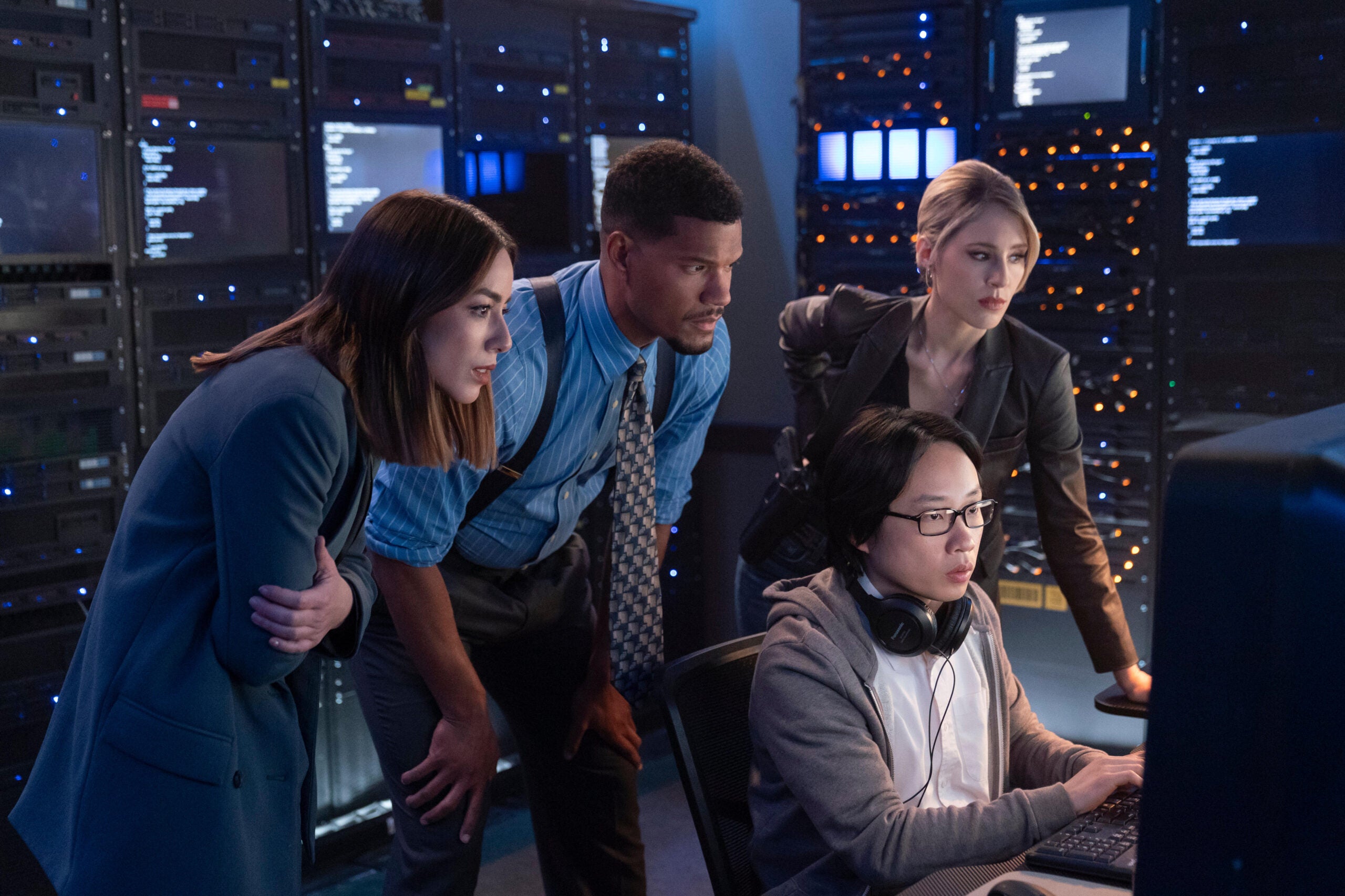Hannah Bos and Paul Thureen are the creators of the Peabody Award-winning and critically-acclaimed HBO series, “Somebody Somewhere,” which recently aired its final episode after three seasons.
“Somebody Somewhere” takes place in Manhattan, Kansas. The main character is Sam, played perfectly by Bridget Everett. She’s dealing with family tragedy and is insecure about her singing. (Spoiler alert: She has a beautiful voice.) Her healing begins when she reconnects with her friend, Joel, played by Jeff Hiller.
Bos and Thureen recently spoke with WPR’s “BETA” host Doug Gordon about the show’s vibe, their wholistic approach to character development, and the surprise of getting to make the show at all, let alone three seasons.
Stay informed on the latest news
Sign up for WPR’s email newsletter.
The following interview has been edited for clarity and brevity.
Hannah Bos: You are stepping into a very human world of people a little bit later in their life, in their 40s-ish, trying to figure themselves out. And the pilot starts with some grief for Sam’s character, and she reconnects with an old friend from high school.
And over the course of the pilot, he very gently opens her up to his world in his church. And he reminds her of this thing that she has inside of her, which is this love of music.
Doug Gordon: Yeah. Why Manhattan, Kansas?
HB: Well, Bridget Everett is from Manhattan, Kansas.
Paul Thureen: We when we first pitched the idea to her, we knew she’s from Kansas. Hannah and I are both Midwesterners, so we wanted to tell a Midwestern story. And I think originally we had set it in Emporia, Kansas. And Bridget took us to Emporia, and then she was like, “Well, we’re close enough, let’s go to Manhattan.”
Then we went to Manhattan and we were like, “This is the place and it’s where she’s from.” And so it’s sort of a love letter to her hometown. And also, Manhattan is called the Little Apple. And there’s so many shows about the person in small town going to the Big Apple to make it. And we were like, “Well, what if she stays in the Little Apple?”
DG: The main character is Sam, played beautifully by Bridget Everett, who you just referenced. What role did Bridget play in the creation of her character and the writing of the show?
PT: You know, the character isn’t Bridget and Bridget isn’t the character, but I think they have some similarities in their struggles. And I think that writing with Bridget, she’s so open about things in her life and vulnerabilities and then also a great part of the show is music. And she has such a love for music and her articulation of what music means and how that’s how she sees the world. I think we really rely on her for that.
DG: When we meet Sam, she’s dealing with a lot: family tragedy, self-doubt about her singing voice, fitness for love, maybe a bit of arrested development. How does her friend Joel help her find her way through all of that?
HB: Joel really sparks her interest again and reminds her of her love for music. You know, her character grew up with music. She’s from a family of people who sing. But she had been so caught up in her grief that she had not really been tapping into her music.
We would always say that music is Sam’s superpower. And he really reminds her of how good that makes her feel. But Joel also becomes a really good friend, and over three seasons, shows her how to open up to love.
DG: Church and religion are important to Joel’s journey. From choir practice, to his relationship with boyfriend Brad, to even facing a former bully. Can you tell us a little more about Joel’s relationship with his faith?
PT: Yeah, I think that’s something that interestingly, the actor Jeff Hiller was raised in the church in Texas. And as a gay kid growing up in Texas, you wouldn’t think that the church is where you would find comfort. But I think for a lot of people, it is. And we all know it’s a complex thing and some of the pain that religion has caused.
But for a lot of people and even queer people in Kansas, that can be a place that you find community. So I think for us, we really wanted to approach that journey and that character and that world with an open heart.
DG: In Season 1, Sam and her sister, Tricia, have this tense, almost adversarial relationship with each other. Why is that?
HB: Oh, I got a lot to say about Tricia, especially this season. I love Tricia. I love Mary Catherine Garrison.
I think — now that we’re starting to sadly look back on the three seasons — about her pilot basement scene where she confronts her sister and she is not as open as you might hope.
We start out in the pilot where Sam is dealing with very new grief about losing her sister, who’s passed away. And she’s stuck with sort of her least favorite sister. And they have to define their family in a new way and invent a new relationship with this gap of a sister that is not there. And over the three seasons, I feel like there’s this beautiful growth between the two.
PT: Sibling relationships are also really powerful because nobody knows you better, and nobody knows what buttons they can push more. Like, this person is the closest person to me in the world, but also so different.
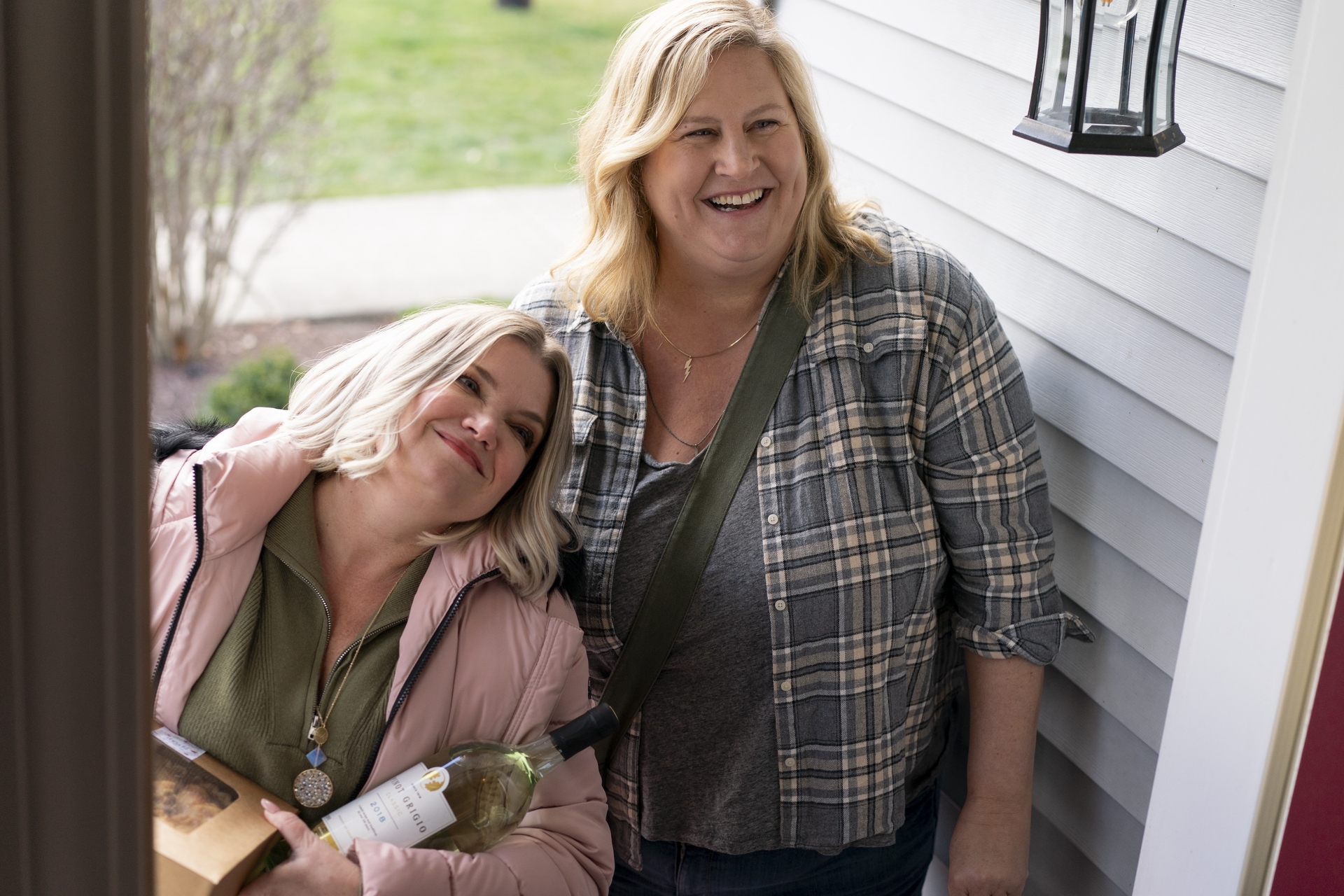
DG: And it’s something that, as you address, that’s something that we all can relate to, I think. How has Sam and Tricia’s relationship changed by the time they sit down to Thanksgiving dinner in Season 3?
HB: You know, Sam has, dare I say, become friends with her sister. They are friends. Not only did Tricia get let inside Sam’s pretty wonderful group of friends, she gets to also be a friend. She’s not just a plus one. She’s actually part of this crew now.
DG: From the pastoral visuals and score, to the ultra realistic dialog, awkward giggles and the tense silences, the show’s tone and pace feel like an extra character. Can you explain the importance of the vibe the show has?
PT: That’s great. Yeah. In the first season, we were like, “Is this enough? Can you let a show breathe like this?” You know, you have the writing, you have the shooting, and then there’s the edit. And I think that’s really where you find the rhythm of the show.
We really found that you needed to let it breathe and to feel sort of, as you said, like the landscape and the vistas and the land. Everything needed to be seeped with those vibes. And that becomes part of the storytelling.
HB: I love that you use the word “vibe” because I use it a lot and we lean into that. You just show up at this show just like our characters. You can either hang with them or you could observe. But there is a vibe and a pace to this show. There’s already enough stress in the world, right?
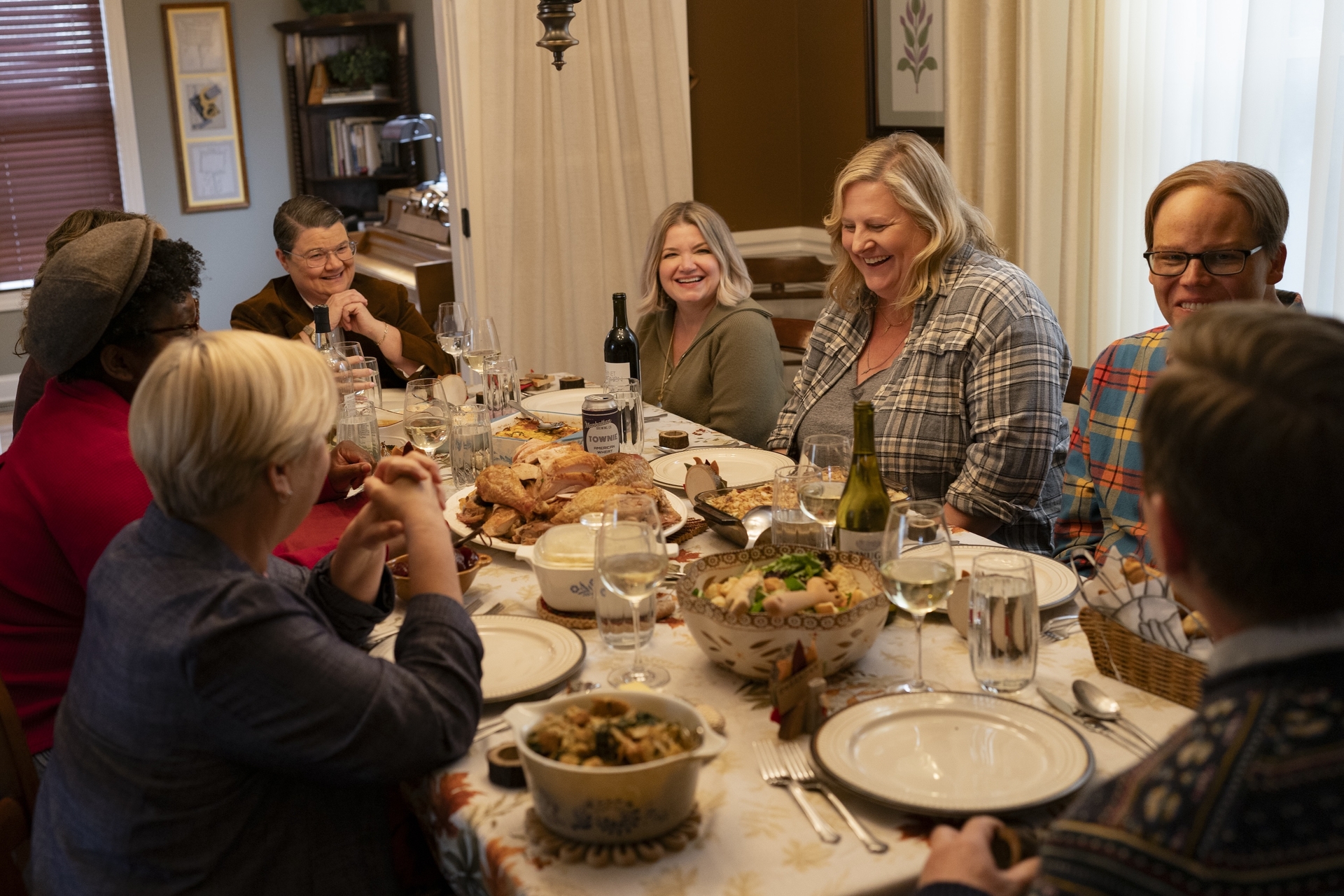
DG: Exactly. That’s the beauty of this show. That’s one of the core values I would go so far as to say. Murray Hill, who plays Fred, has mentioned how grateful he is that Fred was depicted as just a person. What do you think “Somebody Somewhere” does differently when it comes to representation?
PT: I think for us, it’s about not just presenting people as one thing, whether it’s their sexuality or their body type. And even if we don’t see it all, that these people have full lives and goals beyond just their purpose in the storyline. And if we feel like a line is written just to advance the plot or a character is just there because they need to be for a story, we push away from that.
So I think for us, representation means that everybody is approached as a full human with things that aren’t great about them and things that are great about them. And when you’re looking at queer people of faith in the Midwest, just looking at that with real nuance and as full people.
DG: Bridget wears a necklace that says G.A.A.O., growth against all odds, which she says came from the show’s writers room. How has that phrase been a guiding light for Sam’s arc and the show in general?
HB: We gave her that necklace. I’m so glad you asked and that you noticed. That’s been Season 3’s mantra. Small growth very slowly. But this season, she was really going to open up to some parts of love for herself and in herself and also outwardly.
PT: And I love the growth that she has in this season where you can see the way that she’s able to be there for people. The way she’s able to be there for Joel, for her sister. The Sam we know would run away. The Sam we know would push people away. The Sam we know would punish people for not saying the right thing. And in this season, she’s come to a different place in her life. I think it’s really cool to see that.
DG: As everyone gathers at the bar in the finale and Sam sings one last song, it feels like they’ve all come a long way, but it doesn’t feel tidy. The obstacles are still there. Some new, some old. What do you think the future holds for Sam and Joel?
PT: I saw Hannah’s lower lip stick out because that was very, very beautiful. Well said.
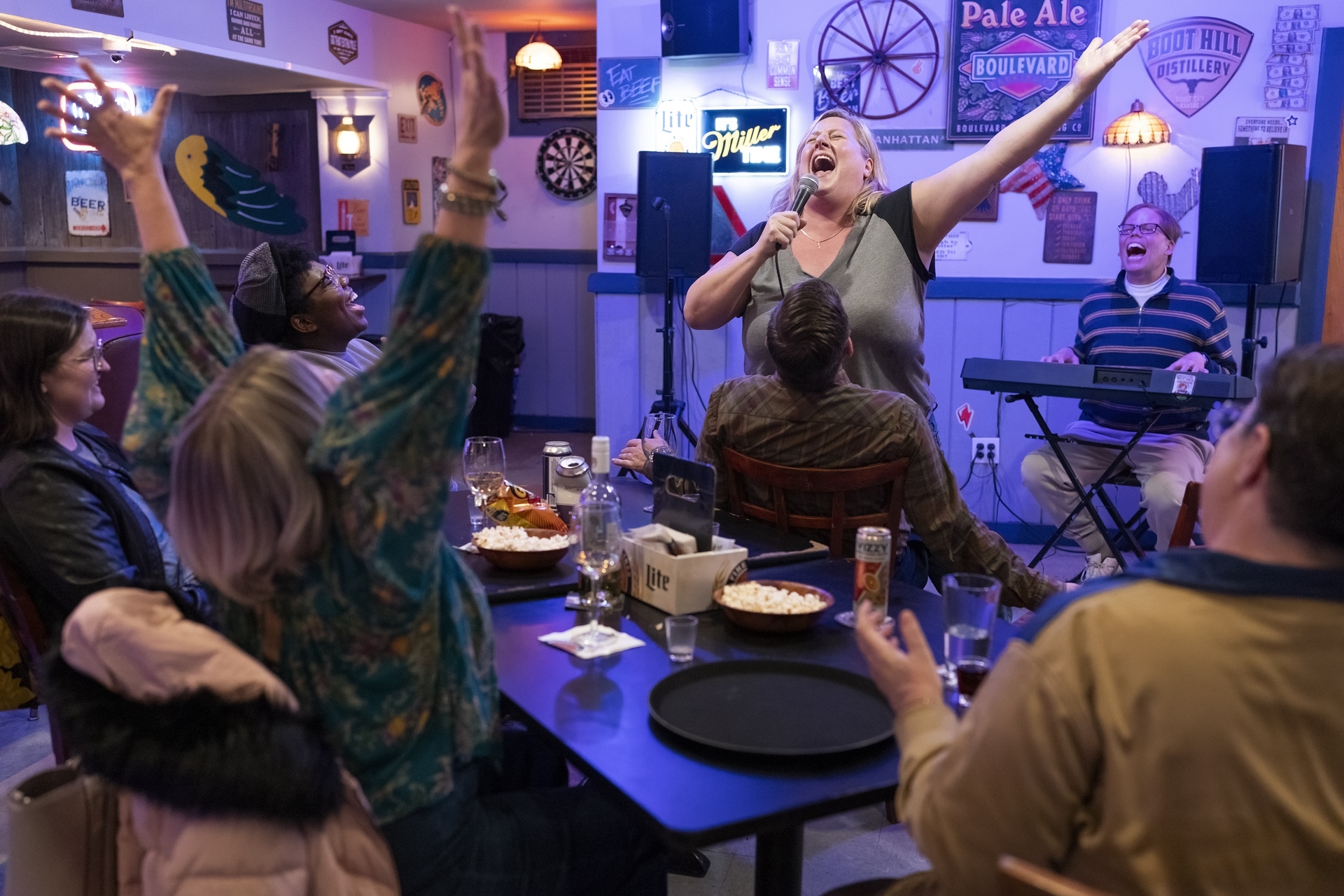
HB: That was a beautiful way of saying it. You know, I think about in episode 7, we have Sam and Joel in the car, and they are saying, “You’re my person.” I think that’s so key to what’s next for them, which is, through thick or thin, they have each other. So I sort of see them driving off into the distance to just sit by a field and talk and make us laugh.
PT: I also love that we end with her inviting her friends and family to the bar to sing, to share who she is with them. And it’s not like at a concert venue. It’s not about strangers being there. Just, she’s had a good day and wants to share it with these people who have sort of gotten her to that place. And I can just imagine them, as Hannah said, sitting in cars, talking and laughing and farting.
HB: Respectful, grounded farts.
DG: The farts must be grounded. There’s no question about that.
HB: You’re my new favorite person. I’ve got to say!

